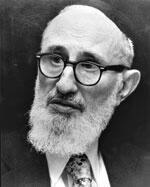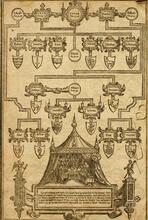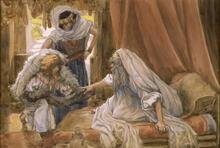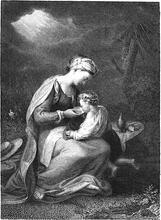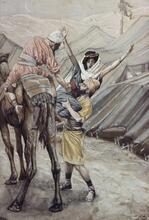Wife of Manoach; Samson's Mother: Midrash and Aggadah
Manoah’s wife, the mother of Samson, is included among the twenty-three truly upright and righteous women who came forth from Israel. The midrash teaches how she experienced the social shame of being a barren woman. Soon thereafter, an angel of the Lord appeared to her and told her she would conceive a child. Manoah’s wife gave birth to Samson and did all she could to fulfill his calling as a Nazirite and the deliverer of Israel. This included dissuading him from marrying the Philistine woman from Timnah. The Rabbis commented on why the angel revealed himself to Manoah’s wife, and not to Manoah himself. they asserted that Manoah was an ignoramus who did not even learn Scripture, while his spouse was a righteous woman.
Background
Manoah’s wife, the mother of Samson, is included among the twenty-three truly upright and righteous women who came forth from Israel (A type of non-halakhic literary activitiy of the Rabbis for interpreting non-legal material according to special principles of interpretation (hermeneutical rules).Midrash Tadshe, Ozar ha-Midrashim [Eisenstein], 474) and among the twenty-two worthy women in the world (Gen. Rabbati, Hayyei Sarah, 100–101).
The Babylonian Rabbis knew Manoah’s wife as “Zlelponi” or “Zlelponith” (BT Bava Batra 91a; and from there this tradition also made its way into the late Statements that are not Scripturally dependent and that pertain to ethics, traditions and actions of the Rabbis; the non-legal (non-halakhic) material of the Talmud.aggdah), a name that affiliates her with the tribe of Judah, since a woman by this name appears in the Judahite lineage in I Chron. 4:1–3. This identification is meant to resolve a certain textual problem: Jud. 13:2 states that Manoah was from Zorah, from a Danite family. Zorah is mentioned as being in the tribal portions of both Judah and Dan (cf. Josh. 15:33 and Josh. 19:41). The Rabbis deduce from this that Samson’s father was from the tribe of Dan, while his mother was of Judahite descent, thereby associating Samson, who judged Israel for twenty years, with the Israelite royal tribe (Num. Rabbah 10:5). Another interpretation of this name is that Manoah’s wife merited seeing an angel of the Lord, and an angel is called zel (literally, shadow). The form zll, with a double lamed, is a plural of zel, since she saw the angel twice, in the city and in the field (Num. Rabbah, loc. cit.). A third explanation is that she sat and expounded until the meaning of the Torah she-bi-khetav: Lit. "the written Torah." The Bible; the Pentateuch; Tanakh (the Pentateuch, Prophets and Hagiographia)Torah became clear (hizlilah) (Midrash Eshet Hayil, in Wertheimer, Batei Midrashot, vol. 2).
A Barren Woman
The midrash claims that their lack of children (“His wife was barren and had borne no children” - Jud. 13:2) resulted in a quarrel between Manoah and his wife. He would tell her: You are barren and cannot give birth; while she would charge him: You are sterile, and therefore I did not give birth. When the angel of the Lord appeared to her, he informed her (Jud. 13:3): “You are barren and have borne no children; but you shall conceive and bear a son.” The angel mentioned barrenness in order to effect domestic peace: he tells her that she is barren, and this is why she has not become pregnant (Num. Rabbah 10:5). There is also, however, a contrary tradition, that maintains that in order to bring peace between Manoah and his wife the angel engaged in a fabrication, for Manoah was sterile, and not his wife (Masekhet Derekh Erez, “Gadol ha-Shalom [Great Is Peace]” 7).
Teaching of the shame attached to barrenness, the midrash relates that the Judge Ibzan had sixty children and held one hundred and twenty feasts when they married, but he did not invite Manoah and his wife to a single one of these celebrations. He reasoned: How will this barren mule repay me? This couple has no children, and they will never be able to invite me to their banquet. In the end, Manoah and his wife were blessed with a son, while all of Ibzan’s offspring died in his lifetime. This gave birth to the popular saying: “You begat sixty, of what benefit to you are the sixty. Try and beget one, who will be brighter than sixty.” That is, the only child of Manoah and his wife brought greater benefit than the sixty sons and daughters of Ibzan (BT Bava Batra 91a).
This barrenness is actually mentioned in praise of Manoah’s wife, since she is among the list of seven renowned barren women: Sarah, Rebekah, Rachel, Leah, Manoah’s wife, Hannah and Zion, of whom Ps. 113:9 states: “He sets the childless woman among her household as a happy mother of children.” The beginning of the verse depicts their barrenness, while its end portrays their happiness when they are blessed with offspring (Pesikta de-Rav Kahana, Rani Akarah [“ Rejoice, O barren one”—Isa. 54:1], 20:1). In addition to a son (Samson), Manoah’s wife also gave birth to a daughter named Nashyan (BT Bava Batra 91a).
Encounters with the Angel
According to the Biblical account, Manoah’s wife saw the angel twice, while some traditions speak of a third time, when she returned with her husband (Mishnat R. Eliezer 15, p. 292). Based on her telling her husband (Jud. 13:6): “A man of God came to me; he looked like an angel of God,” the Rabbis learned that she thought she had seen a prophet, and not an angel (Lev. Rabbah 1:1). Manoah’s fearful reaction when the two learn that this was an angel of the Lord reflects the decline of the generations. The midrash compares them to Hagar, the Egyptian handmaiden of Abraham, who saw an angel of the Lord five times, but was not afraid. This decline is reflected in the proverb: “[Better] the fingernail of the fathers than the belly of the sons,” meaning, even the least part of the body of the Patriarchs (the handmaiden Hagar) is better than the most desirable portion in the body of their descendants (Samson’s parents; Gen. Rabbah 45:7).
The angel elected to reveal himself to Manoah’s wife, and not to Manoah himself. The Rabbis assert that Manoah was an ignoramus, who did not even learn Scripture (BT Berakhot 61a), while his spouse was a righteous woman. Manoah, however, did not want to rely upon his wife, and wished to speak with the angel himself. The midrash has Manoah saying: Until now I heard from my wife, but women are not qualified to teach, and I do not rely on what they say. “Let your words come” [Jud. 13:12] - I want to hear from your mouth, for I do not believe what she says, perhaps she may have changed something while speaking, or omitted or added something. “What rules shall be observed for the boy” [idem.]—what form of naziriteship shall the child be required to observe after he is born? The angel, however, did not concur with the attitude expressed by Manoah. He was respectful of the latter’s wife, and consequently bade him (v. 13): “The woman must abstain from all the things against which I warned her.” The angel thereby sought to give added force to his original statement and to endear her to him (Num. Rabbah 10:5).
Mother of Samson
The Rabbis emphasize that Manoah’s wife did everything in her power to ensure that her son fulfilled his calling as a Nazirite and the deliverer of Israel. The Bible relates that she scrupulously observed his nazirite status when he was still in her womb, and she refrained from any fruit of the vine, as the angel had commanded her. The rabbis believe that the angel directed her concerning wine because it leads to lascivious activity, and the Holy One, blessed be He, knew that this was Samson’s weakness, and that he would come to sin with women (for Samson’s sinning with Gentile women, see “The Women in Samson’s Life” and “Delilah”).
We hear in the Bible of the attempts by Samson’s parents to dissuade him from marrying the Philistine woman from Timnah. The midrash adds that while on their way to Timnah his parents saw the vineyards of Timnah, that were planted with kilayim (different species planted together, which is forbidden in Lev. 19:19). They told Samson: “Just as their vineyards are planted with kilayim, their daughters, too, are the result of mingled seed,” thinking that in this manner they would convince him not to marry this woman (Num. Rabbah 9:24), but Samson did not heed his parents’ entreaties.
Manoah’s wife thought that her son would be a Nazirite all his life, and so when she repeated the angel’s command to her husband, she added: “[for the boy is to be a Nazirite to God from the womb] to the day of his death.” She did not know that another woman would violate his nazirite restrictions, and that Delilah would cut his hair. The angel, who foresaw the future, did not include this (Num. Rabbah 10:5; cf. vv. 5 and 7 in Jud. 13).
A midrashic tradition applies to Manoah’s wife the verse in the “Woman of Valor” paean (Prov. 31:24): “She makes cloth and sells it” (for livelihood), for Samson came forth from her to provide for (i.e., to deliver) Israel for twenty years. Another tradition refers to her v. 22 in the same chapter of Proverbs: “She makes covers for herself,” since she wove and sold in the marketplace, thereby providing for her son (Midrash Eshet Hayil; Yalkut Shimoni, Proverbs, para. 1164).

